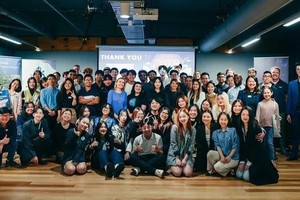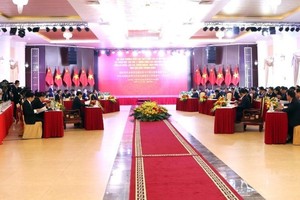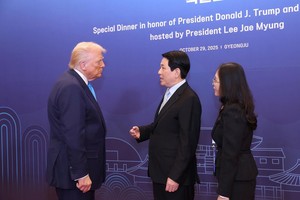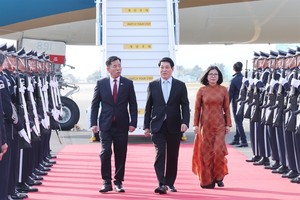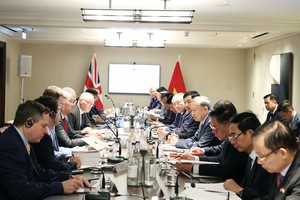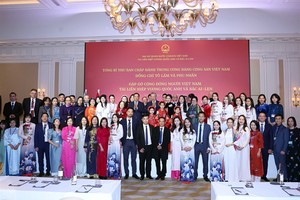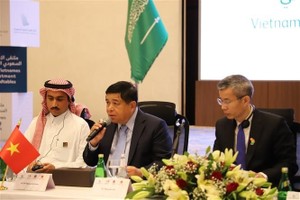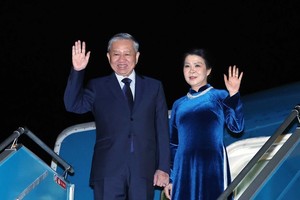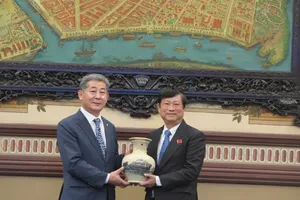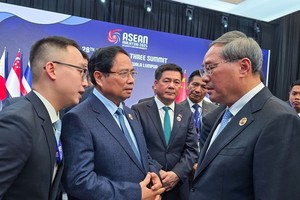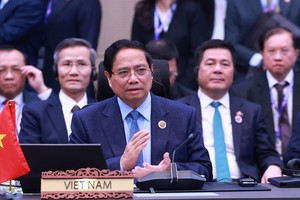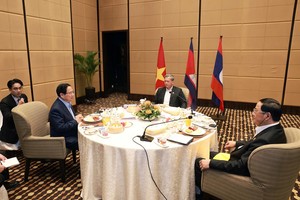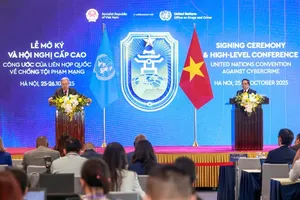FUKUSHIMA CITY, Japan, May 12, 2011 (AFP) - Nuclear radiation is not the only invisible enemy threatening Japan's disaster-hit Fukushima -- its people say they also face discrimination and the stigma of being "Japan's Chernobyl".
While radioactive material has spewed from the stricken Fukushima Daiichi nuclear plant over nearby homes since the devastating March 11 earthquake and tsunami, locals say the psychological fallout extends much further.
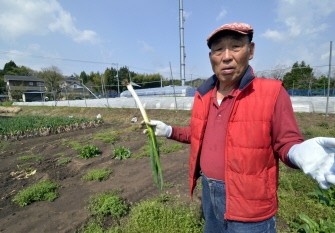
The nuclear accident has devastated agriculture, fisheries and tourism, even in areas deemed safe by the authorities.
Some of those who have left Fukushima since the triple disaster have been turned away from hotels and their children have been bullied.
"As a single women in particular, I'm worried about groundless rumours that women from Fukushima should not be chosen as wives," said 23-year-old Yuma Ito, a computer company employee from Iwaki in southern Fukushima.
"Please tell me why this had to happen to my home?" she said sadly, speaking in the town some 40 kilometres (25 miles) from the plant.
Some evacuation centres elsewhere in Japan have demanded 'radiation-free' certificates from people who fled from the no-go area near the plant.
Hori Hiroyuki, a 16-year-old Iwaki high school student, said: "I have heard that some students from Fukushima have been bullied when they went outside of the prefecture. It's hard for me to go out there."
Top government spokesman Yukio Edano has slammed the reported discrimination, saying "radioactivity is not contagious like infectious diseases".
While the instances of discrimination have compounded disaster victims' emotional pain, the main economic impact has been on farmers, as consumers elsewhere in Japan and beyond have shunned their produce.
The government initially imposed a ban on a range of vegetables and dairy produce from Fukushima and several neighbouring prefectures, but later moved to more targeted bans on specific foods from smaller regions.
Cucumber grower Magoichi Shigihara, 66, from Nihonmatsu -- located some 55 kilometres (34 miles) from the plant in central Fukushima -- says his produce does not fall under the ban, but that this hasn't helped him.
"We have been building up the brand image of Fukushima cucumbers for 45 years, but it has become very fragile overnight," he said angrily. "I have pulled through typhoons and other natural disasters again and again, but this time we are facing an invisible fear that I have never experienced."
Shigihara said many of his fellow farmers had not even bothered planting a cucumber crop this season, adding darkly: "It is uncertain whether we can continue farming in the future. We are right on the brink."
Despite the deep uncertainty, Shigihara has decided to go ahead with planting cucumbers this year, only because he has little choice.
"I have risked everything. I need income to secure my life and family."
Nihonmatsu's mayor Keiichi Miho said his city would seek compensation from the government and plant operator Tokyo Electric Power Company (TEPCO) for the region's damaged image and its economic consequences.
"We are now suffering four difficulties -- the quake, the tsunami, the radiation and the rumours," he told AFP. "I would like the country and TEPCO to take full responsibility for the damage."
While the overall financial impact is still unknown, there are some clues -- Fukushima's hotels association said 680,000 people had cancelled reservations since the disaster, causing losses of at least 7.4 billion yen.
Japan's government estimates that compensation over the nuclear crisis could reach four trillion yen ($49 billion), the Asahi Shimbun reported -- but this figure does not factor in all the more intangible and long-term damage caused by the region's new association with nuclear disaster.
Prime Minister Naoto Kan has joined a campaign against harmful whispers.
"I would like people to buy safe products," Kan said after visiting a Tokyo store selling Fukushima farm produce where he tasted its miso soup and sake.
"Compensation should be made properly," he told reporters, "including for the damage caused by the harmful rumours."
